‘Hey’ is an interview series where we catch up with interesting people from Plymouth and the surrounding area. We discover what they are about and what they are up to.
Next up in the series, we have Kate Pierce & Georgie Tyson from Eat Work Art.
Eat Work Art specialise in creating and running contemporary co-working and creative spaces, often by restoring old buildings. They have several locations in London but have two in Plymouth with a third in the works.
Interview from February 2024.
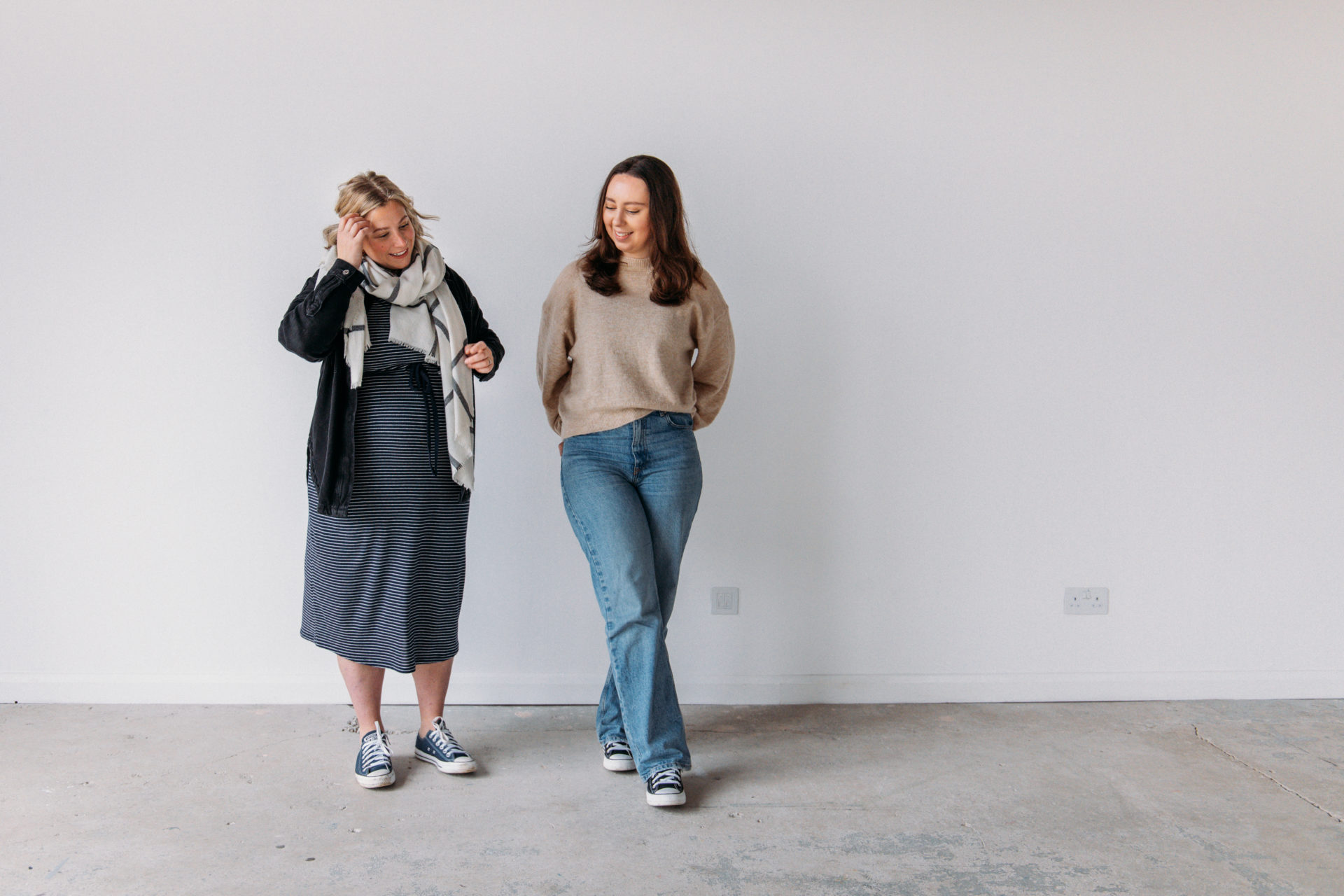
How are you?
Kate: Good. Not getting a lot of sleep at the moment, but everyone says that it’s training for being a parent. But yeah, happy, healthy, invested. Lots of good stuff happening both within and around the city, so there’s lots to celebrate. I’m feeling good.
Georgie: Yeah, good. It feels like we’re on the cusp of a lot of really exciting things at the moment, so it’s a big year.
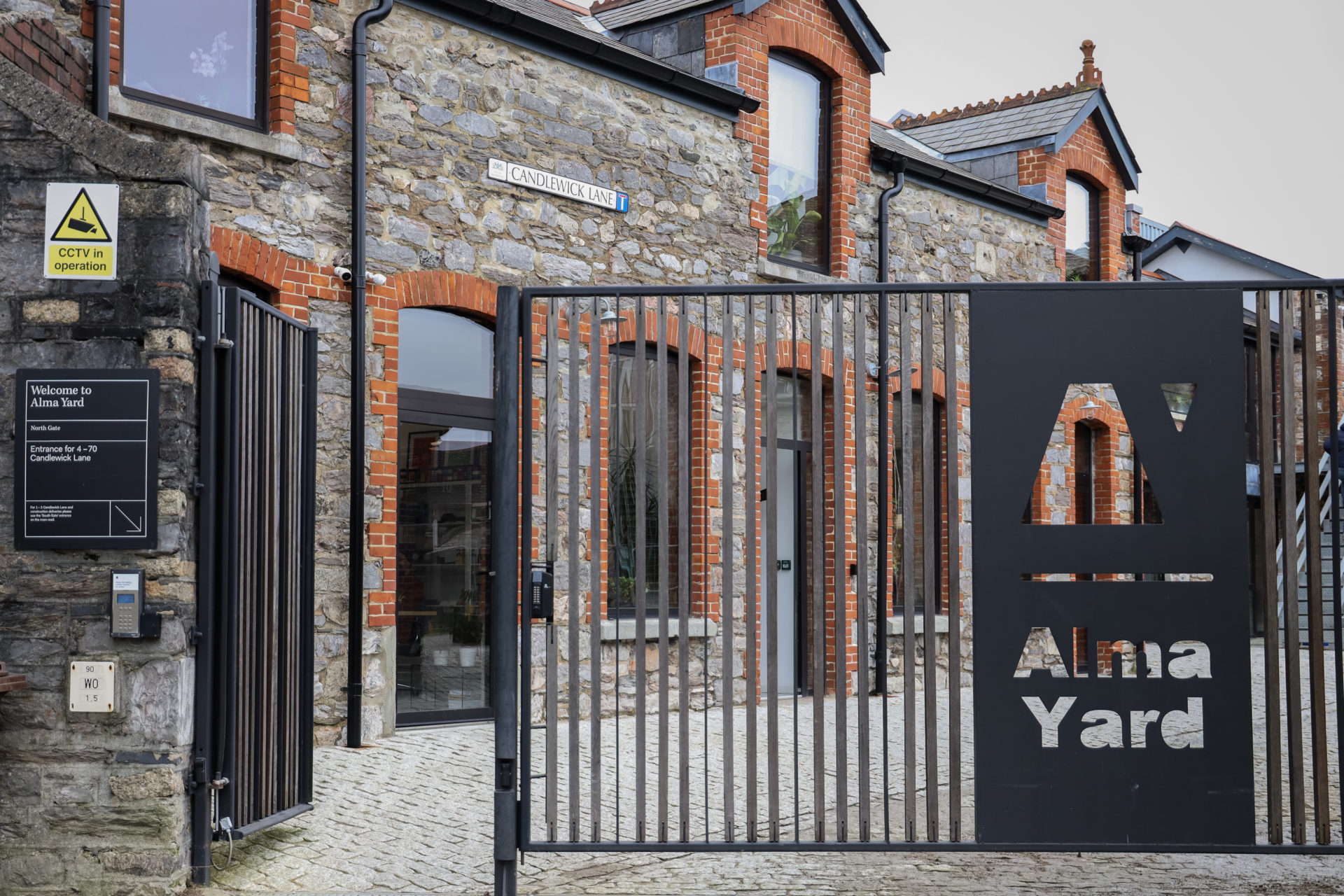
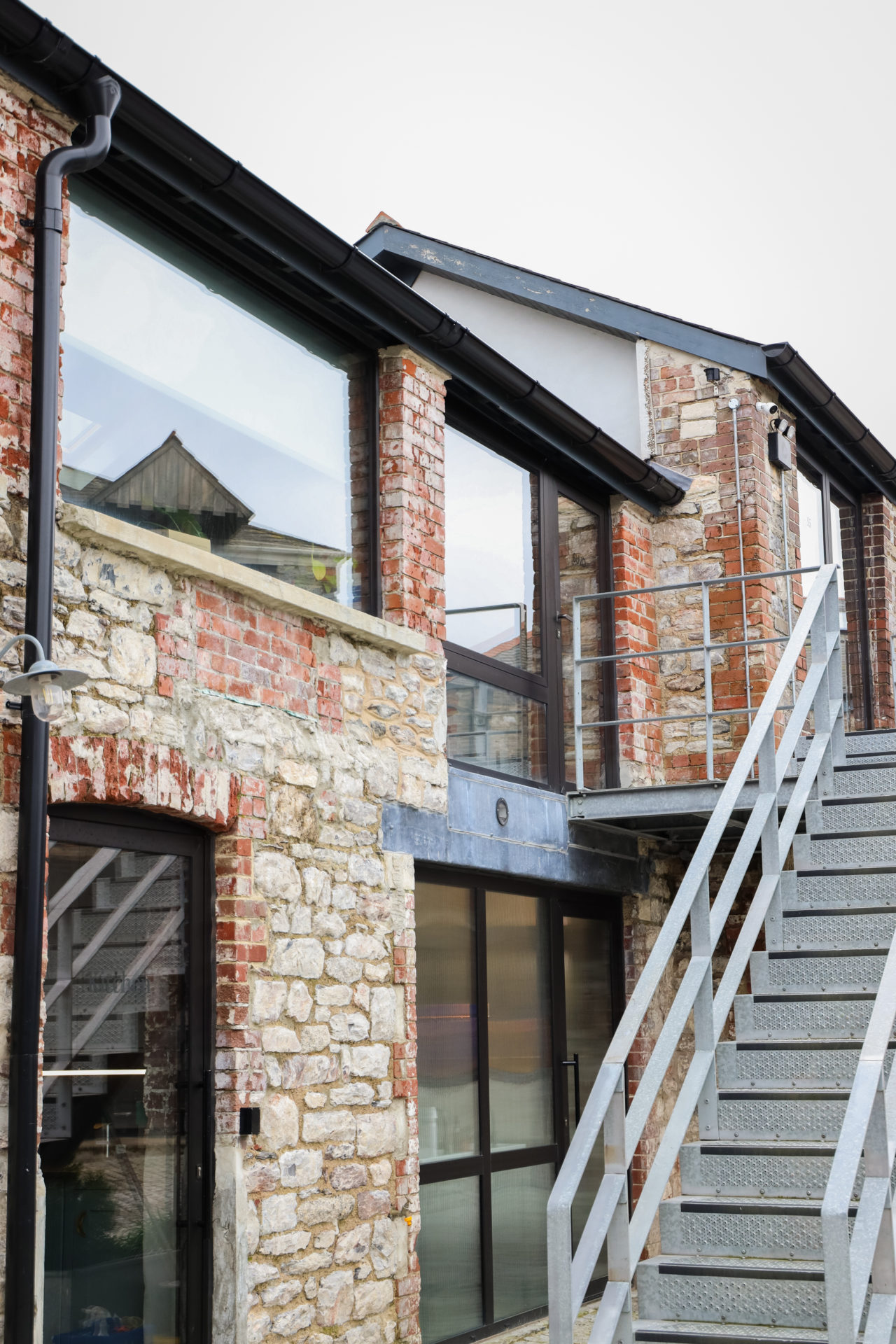
How did Eat Work Art come to be in Plymouth and how did you both become involved?
Georgie: Our director is actually based here in Devon. He lives on Dartmoor with his family and noticed this really burgeoning creative scene in Plymouth that he felt we could really bring something to the table for.
Kate: Yeah, he definitely did. For my involvement, I needed something way more creative, so I genuinely typed into Google ‘Creative jobs Devon’ and this job came up. It was a much more overarching job rather than something more focused, which I have now. It was about finding someone who kind of gets the London creative scene, but also gets Devon, because it is a bit of a slower pace of life here and there are people who think a little bit differently. You come into Plymouth and you can tell that there is culture and there is creativity in little pockets all over the city. And it was like, if we have an opportunity to bring all of those people together under one roof, special things could happen.
Georgie: Kate and I have actually known each other for seven years. We worked together in our previous job. Kate texted me out of the blue one day and was like, there’s something coming up here, you’re going to love it. It moved really quickly from there, within a week or so of Kate texting me I was joining. It happened really fast, but as soon as I stepped foot onto Alma Yard (at the time our only site in Plymouth) I thought it looked like such a beautiful place to work. So, yeah, it came from a recommendation from an old friend.
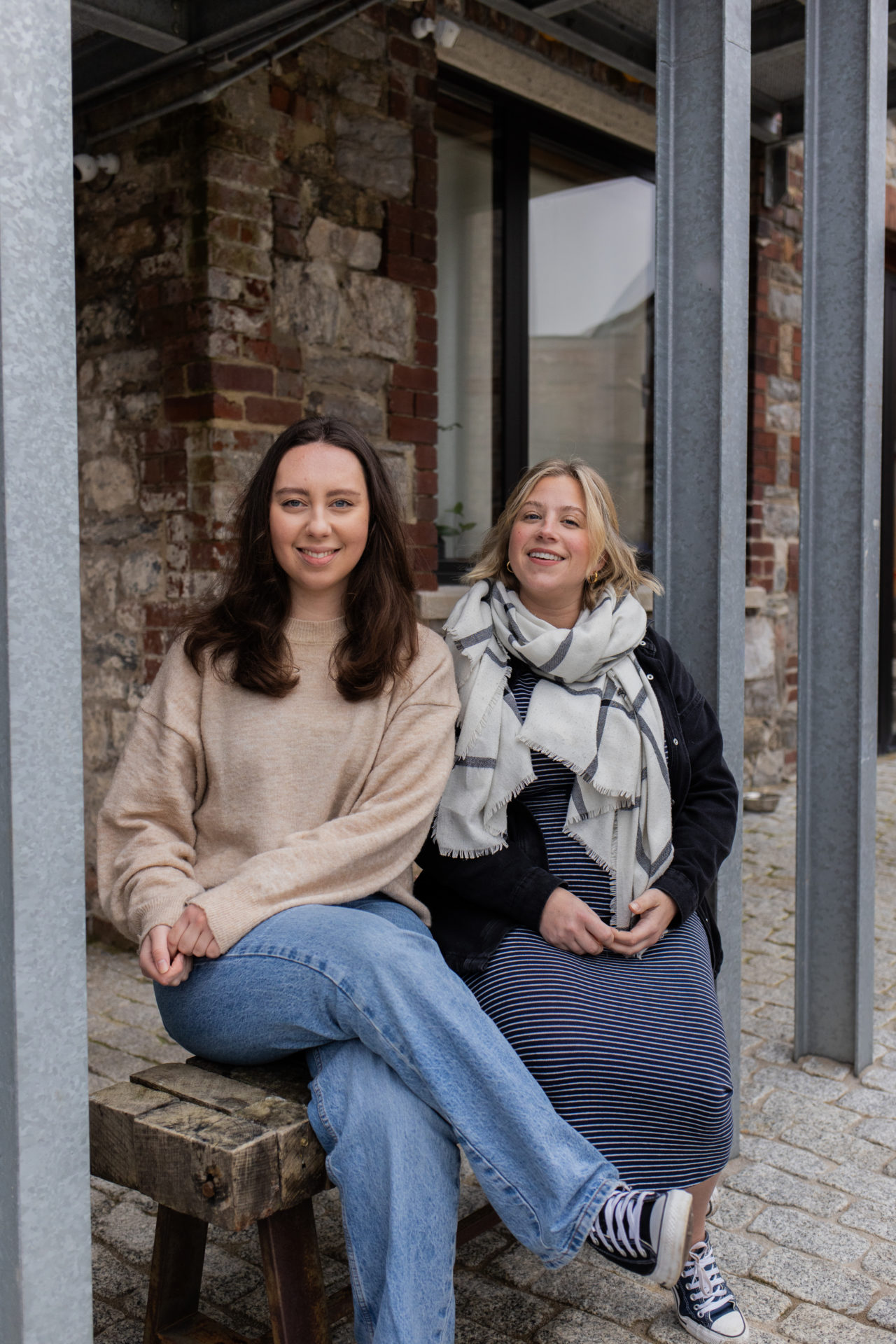
How would you explain Eat Work Art and what you do to someone new?
Georgie: We revitalise unique buildings to create refined workspaces for independent creative communities to grow. With my role, it’s then how we bring those spaces to life, how do we curate our communities so that there’s possibilities for cross-collaboration. People that can both stand apart but complement one another in their work. So it’s always really exciting to see how a site goes from our initial thoughts to how it’s actually occupied and the type of people that become our residents. It’s being able to do that and also highlight the exciting things our residents and other people are doing locally as well. Events like Plymouth Design Forum, which we’re now sponsoring, is just really exciting. It’s something that we wanted to do for a while, celebrating the people that are achieving great things and driving the city’s cultural sector.
Kate: In my role, it’s about building connections. Once you open up a conversation in Plymouth, you realise that you can all elevate each other. Building networks and ensuring that if we collaborate and we share knowledge and we share expertise, then greater things can happen. But also Plymouth has suffered at various points in its history. There are some buildings that need a little bit of love, so continuing to rebuild that, whether that’s something we can invest in on our own or we invest in with partners, we have the opportunity to kind of rebuild Plymouth and attract people to Plymouth whilst retaining talent here as well. Creative talent, specifically.
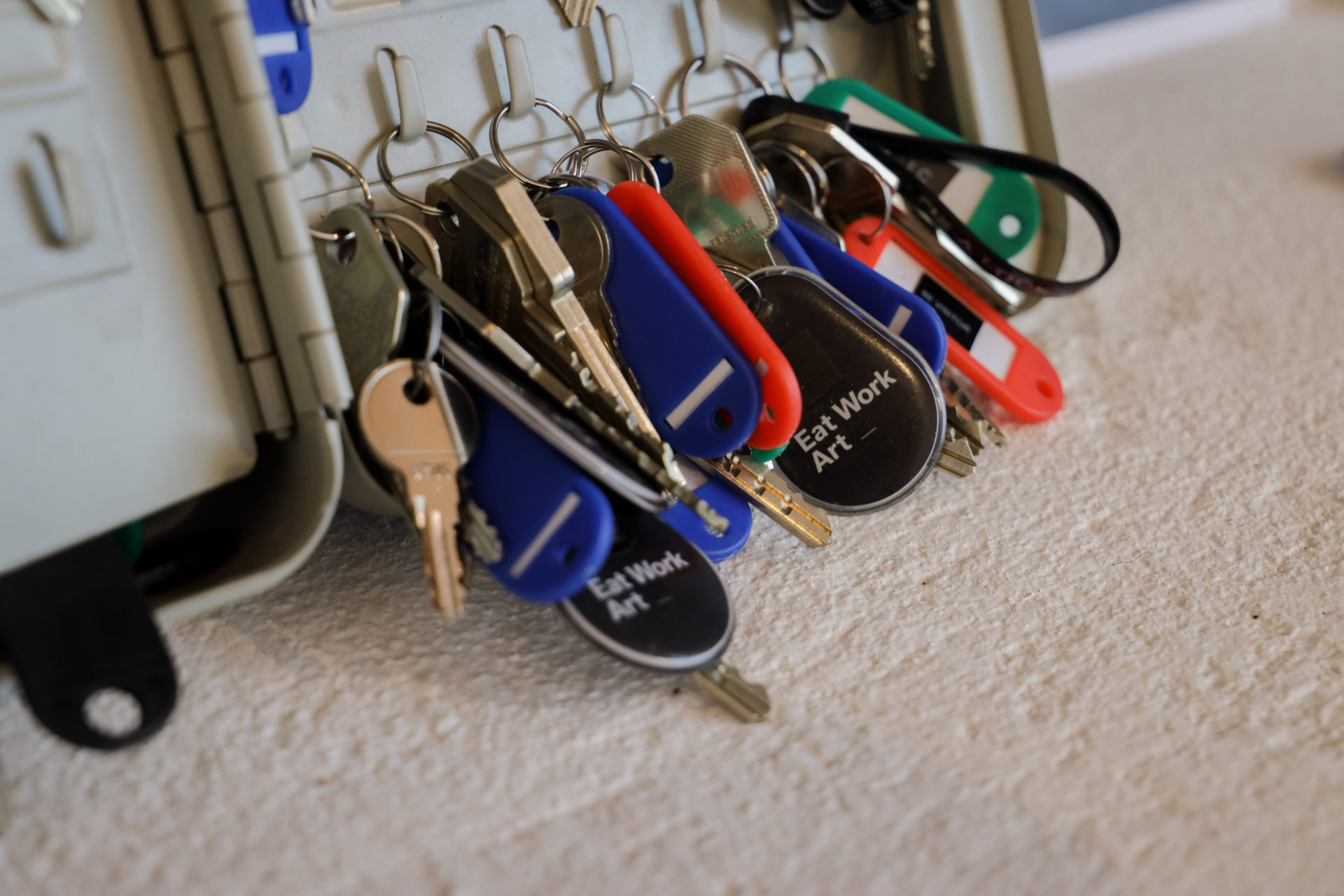
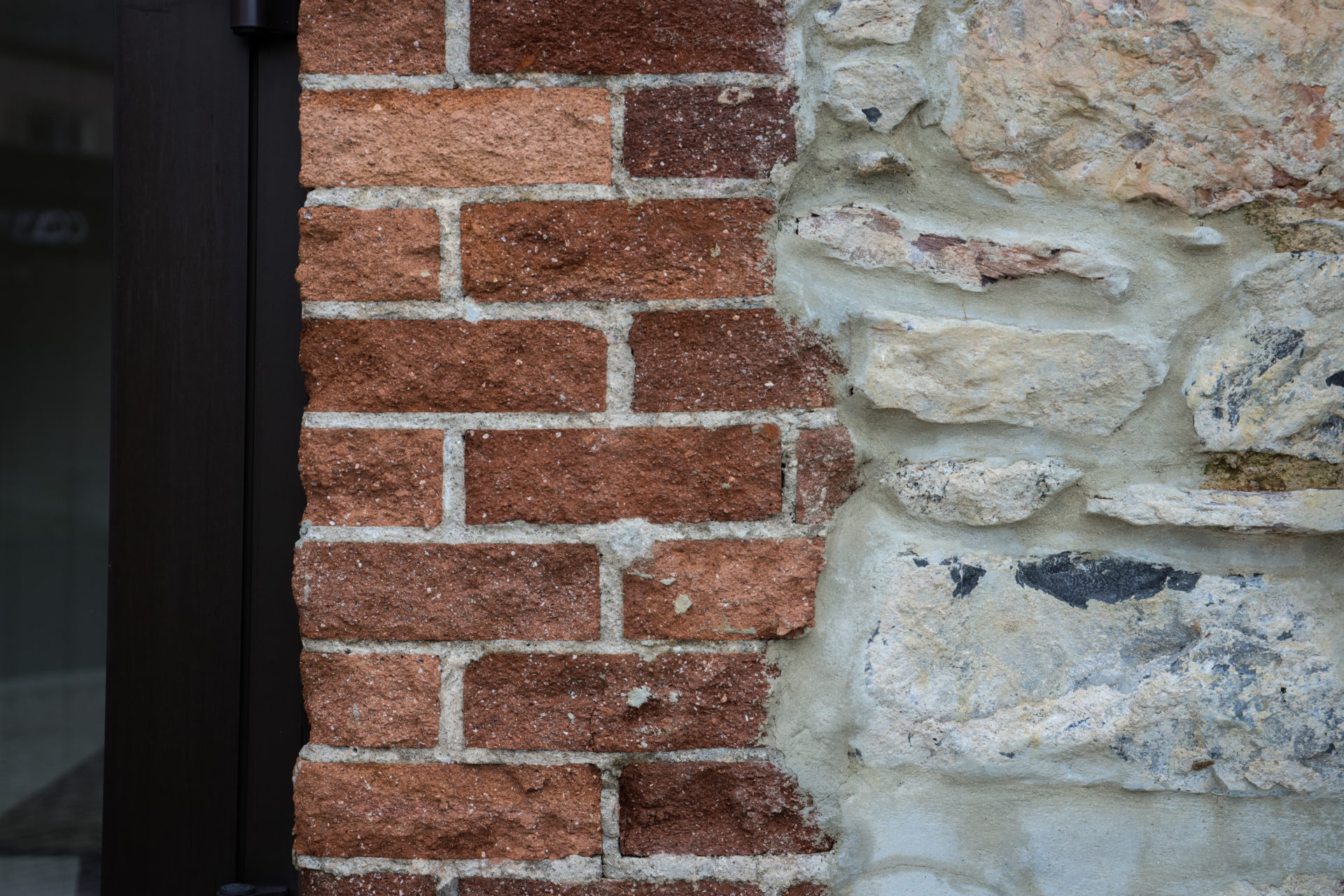
What’s the favourite thing about your job?
Georgie: It’s actually really closely linked to what I said before. It’s the people, for sure. It’s being able to meet people that are doing things that you wouldn’t even know people outside of a major city could achieve. And I think for us it’s being able to showcase that as well. It’s not just London where people have these exciting opportunities. There are residents here that are doing things on a national scale that are really impressive. Being able to meet those people, see so many different ways of thinking, mediums that people explore and being able to hear about their inspirations, it’s really great.
Kate: I agree, totally. A lot of people, whether you’re a true Janner or whether you’re an adoptive Janner, everyone’s kind of a custodian of the city. That’s a huge part of something that I love to do in my job, meeting those people and getting to know them. But fundamentally, on the development side of things, I walk into a building that’s a complete mess, completely dilapidated, and then maybe six months to twelve months later, I’m walking into something that I can hand over to Georgie and she can look to occupy. That’s really satisfying.
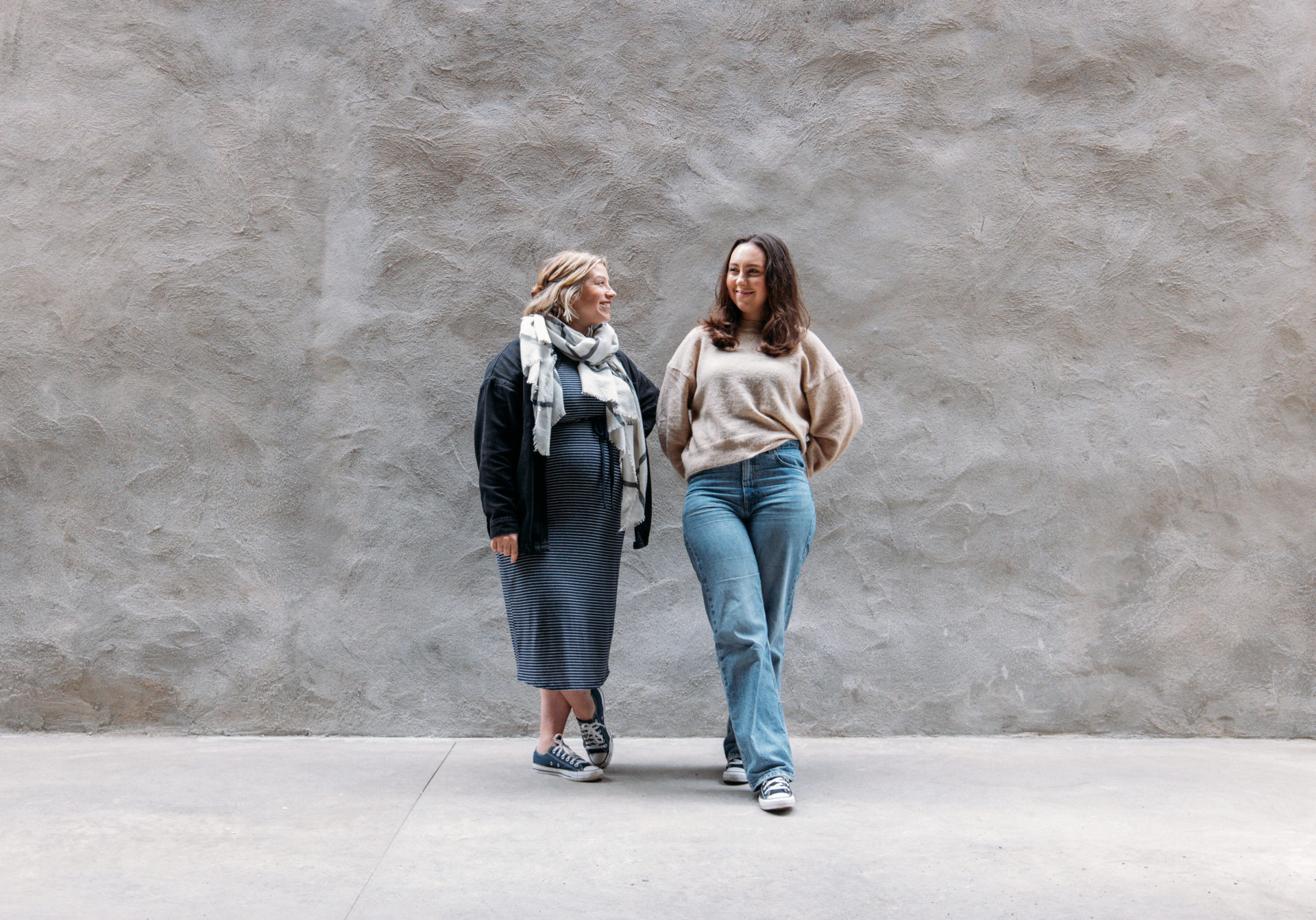
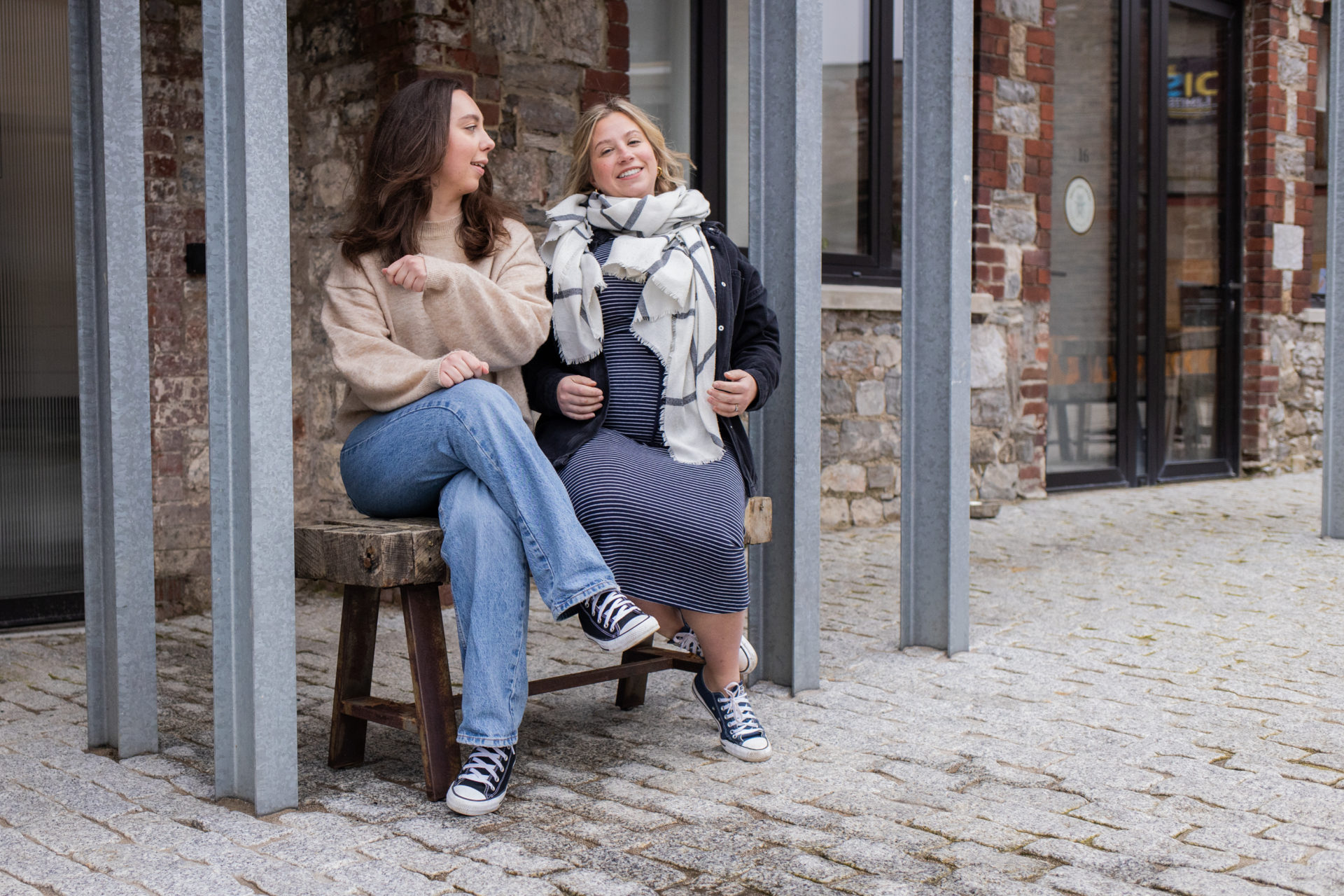
What aspect of your role are you most proud of since you’ve been here?
Kate: Alma was my first development. I think making spaces that are fit for purpose is really exciting. And so whilst it might be incredibly mind boggling and your eyes blur writing a fixture and fittings list of 1000 items, those things are going to be touched every single day by the people that occupy them. And so I think as challenging as that process is, in terms of working it out how it works in other aspects of the design, it’s really lovely knowing that that’s going to have a purpose for someone. I think the other part of it, from a development point of view, is bringing the history of the building into its future story. So, like with Alma Yard for example, bringing a former rope factory back to life in a new way. Simple things like picking rope as the fabric for the bulb wires, it’s a subtle but sensitive way of celebrating a building’s history. So I really love that part of it.
Georgie: I’m going to sound like a broken record, but it is how we’ve curated the communities on our site. We’ve got some really amazing people that are residents here and there’s been some really unique collaborations that have been struck up over a cup of coffee in the kitchen or through these communal spaces that have been designed by Kate’s team so that they’re really intentional but happen really organically. Being able to bring those people into the space and introduce them to like minded people, to hopefully inspire them in their work is what I’m most proud of.
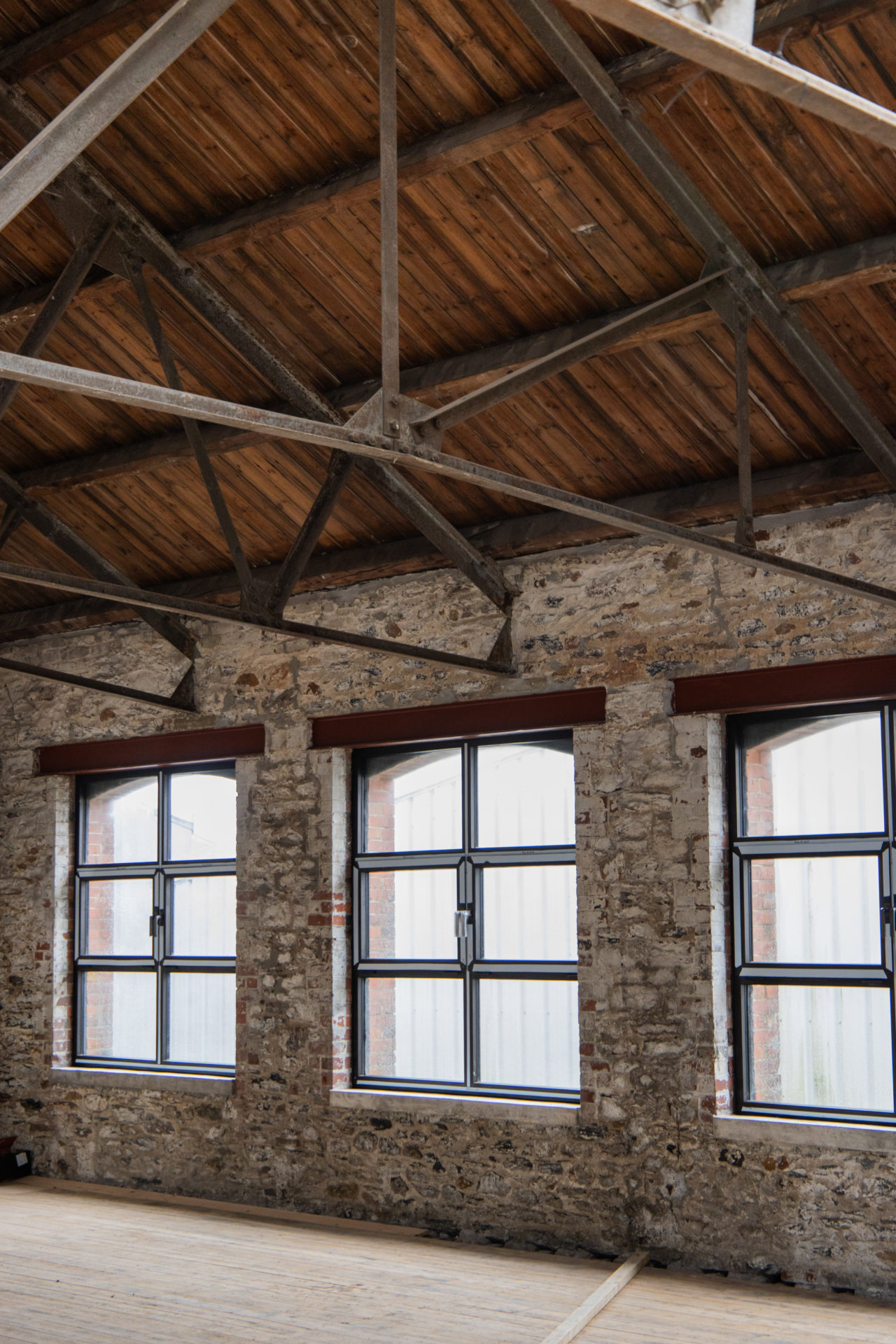
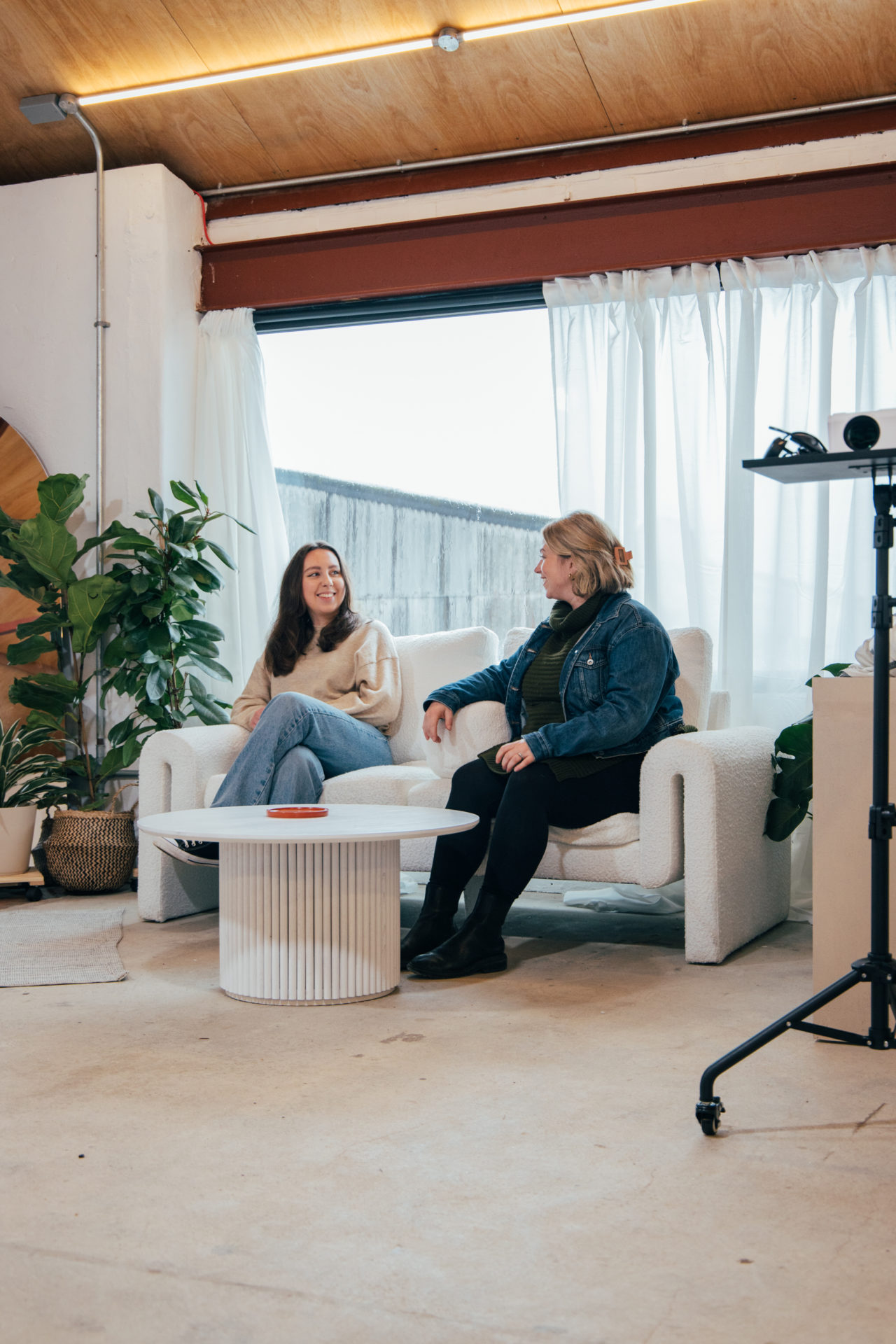
One thing you’d recommend someone to try?
Georgie: Something I’ve tried to do more recently is experimenting with creativity a little bit more. I grew up always thinking, well…actually knowing I was really bad at art. At school, it was not my forte whatsoever. My creative outlet was performance art. But more recently, actually being inspired from the people that we’re surrounded by here and being able to attend PDF and events like that, I’ve just decided to just go for it with visual arts. I’ve tried different mediums and still have a long way to go, but it’s just providing another outlet in a different way, and actually, you feel really great afterwards. I’ve tried to make a mug and it wouldn’t even hold like an espresso. It’s a pathetic attempt, but I felt really good doing it and it then allows me to be inspired in other ways. So that’s what I recommend. Just giving it a shot, it might turn out all right.
Kate: I think travelling, taking a pause and taking a breather and exposing yourself to other people that you might not otherwise meet I think is really important. I took a short sabbatical last year and went to Australia. We speak the same language, we do a lot of the same things. We appreciate good coffee, there’s a lot of crossovers. But actually, culturally, I was quite shocked at how different it was and how there really is this just, such human element to decision making there that it’s like, if that’s not right for you, if these hours work best for you, or you’re a morning person or you’re an evening person, do what works best for you, because that’s when the best output is going to be. Yeah, I think it opens your eyes up to be a lot more sensitive to humans and what makes them tick and what doesn’t. It just makes you a better person, I think. So I’ve come back from that, even though it was short and even though it was in an English speaking country, just having my eyes open to what’s really important. The definition of healthy is subjective in a way. And I think that that’s important. To one person that might be, I eat greens all day every day, and to another person it might mean that I get 12 hours of sleep every day. And it’s just being open to that subjectiveness, which I think is important.
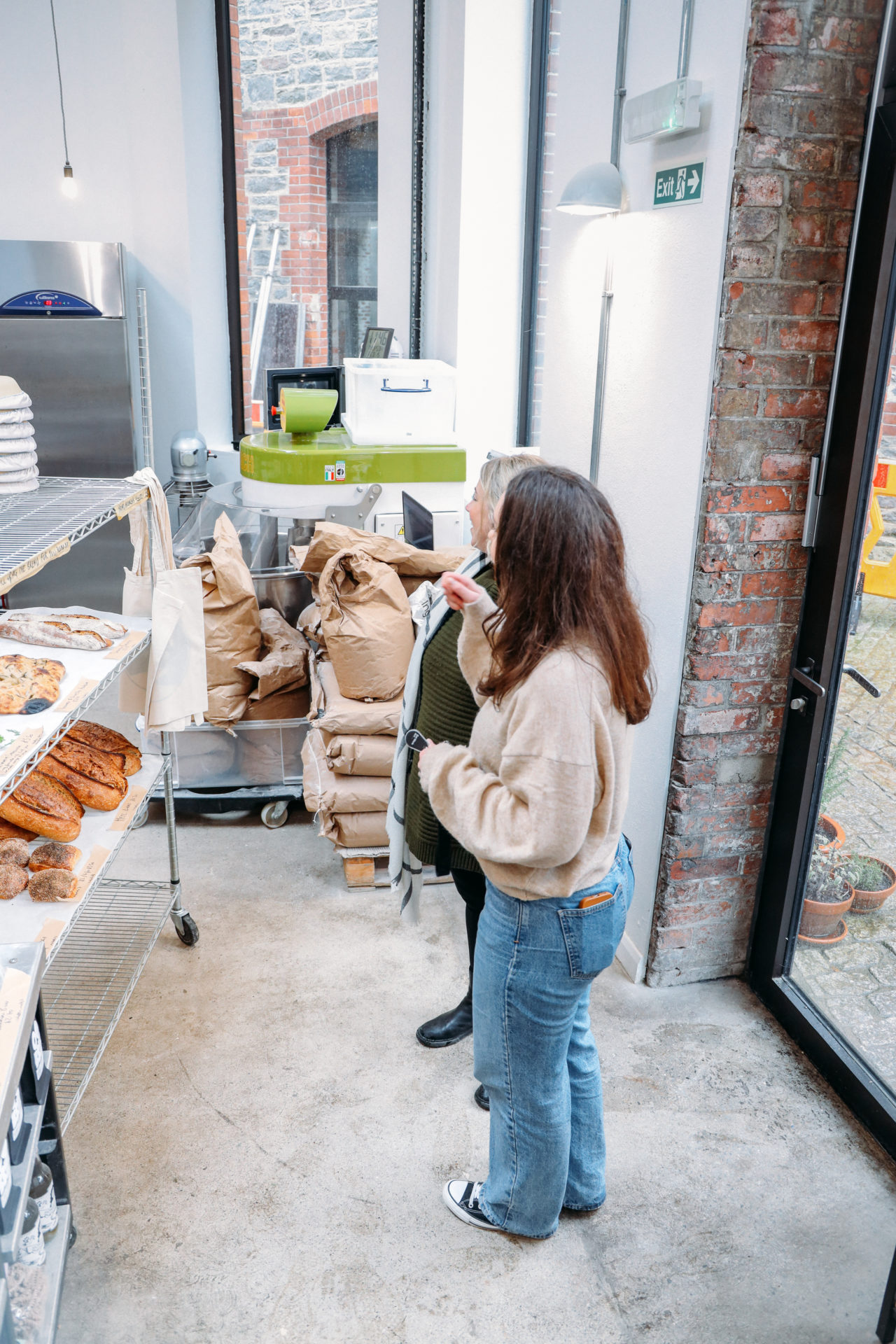
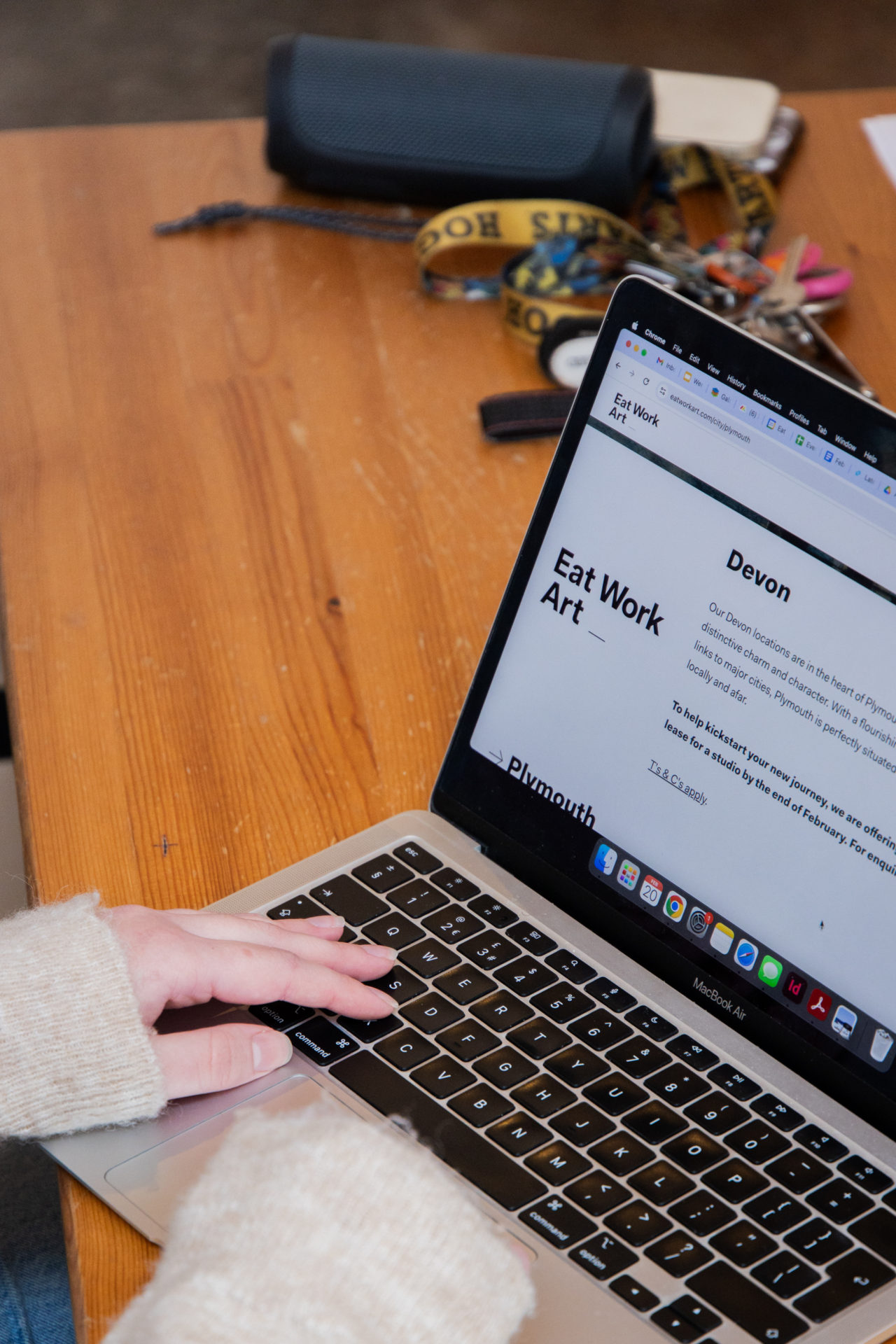
How do you maintain a work life balance?
Kate: Before travelling, there wasn’t for me. Genuinely, this time away was a big eye opener. And certainly having a little man on the way, it does kind of shift your thinking in terms of what’s important. But if I were to say something, I do ensure that there’s the right amount of everything. Work, rest, social life. I don’t want to be social all the time. I love it when I’m in the mood for it, but sometimes I just want to snuggle under a blanket at home and that’s okay. I also make sure that I put my phone down when I get home and that’s a recent phenomenon, but it means that I’m more present.
Georgie: I agree. I was definitely at a point in previous jobs where it was a bit non-existent and for me, actually, it was Covid that kind of flipped the switch. I was put on furlough and took that step back. It just made me reevaluate how I function, I guess, day to day and it’s been so much better since, plus I’ve switched jobs since then. I think it’s also being 100% present in whatever you’re doing. 100% present at work when you’re there and then 100% present in your personal life when you’re at home or with friends or with your partner, whatever that might look like.
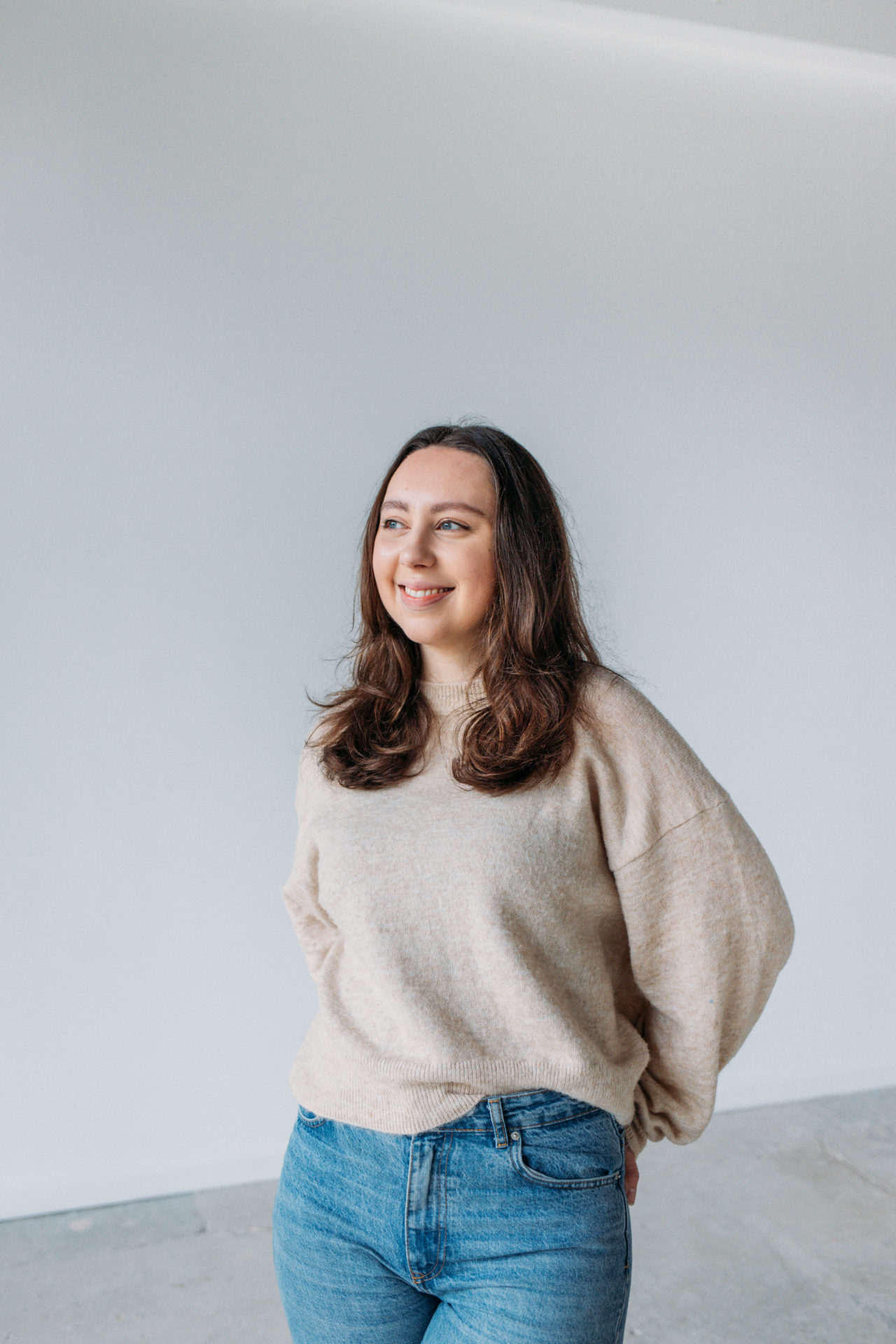
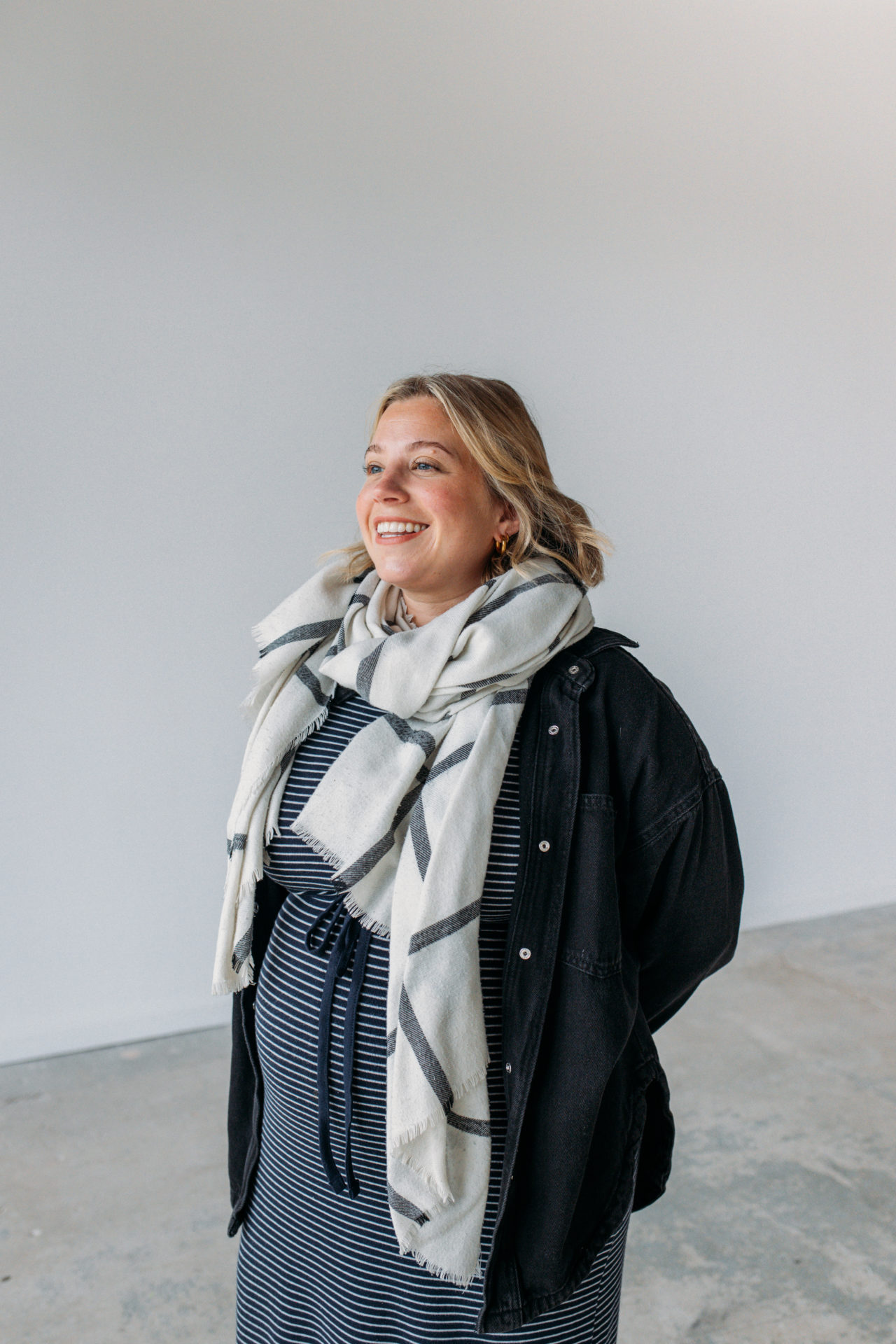
What is in the future for Eat Work Art you can tell me about?
Kate: We have two live projects that are on the cusp of going into the construction phase. The Millennium Building being one of them, which is honestly so exciting. We hope that that’s going to be really transformative for that area of the city and the partnership that we have with Nudge Community. We’re both amplifying each of our own strengths and resources because we look at the world a bit differently, and that’s an exciting prospect in terms of what the output of that’s going to be, which I’m really pumped about. At Alma Yard, we’ve got the Rope Building going through its final stages at the moment before going to construction, and that’s going to have some public-facing elements to it. It’s really exciting because that will be a huge game changer for this site. For me personally, all my focus is going on to bringing a new little human into the world, which, when you think about it, is quite terrifying, but quite an honourable job to have.
Georgie: The Rope Building is probably the most historical part, actually, of Alma Yard. It’s got this beautiful vehicle lift, which is just such a highlight of the site so we are going to keep it. It was one of the things that struck me as one of the most beautiful about the site when I first came on board. Equally, The Millennium Building carries a lot of memories to people who lived in Plymouth in the nineties and noughties, even older generations from when it was a cinema as well.
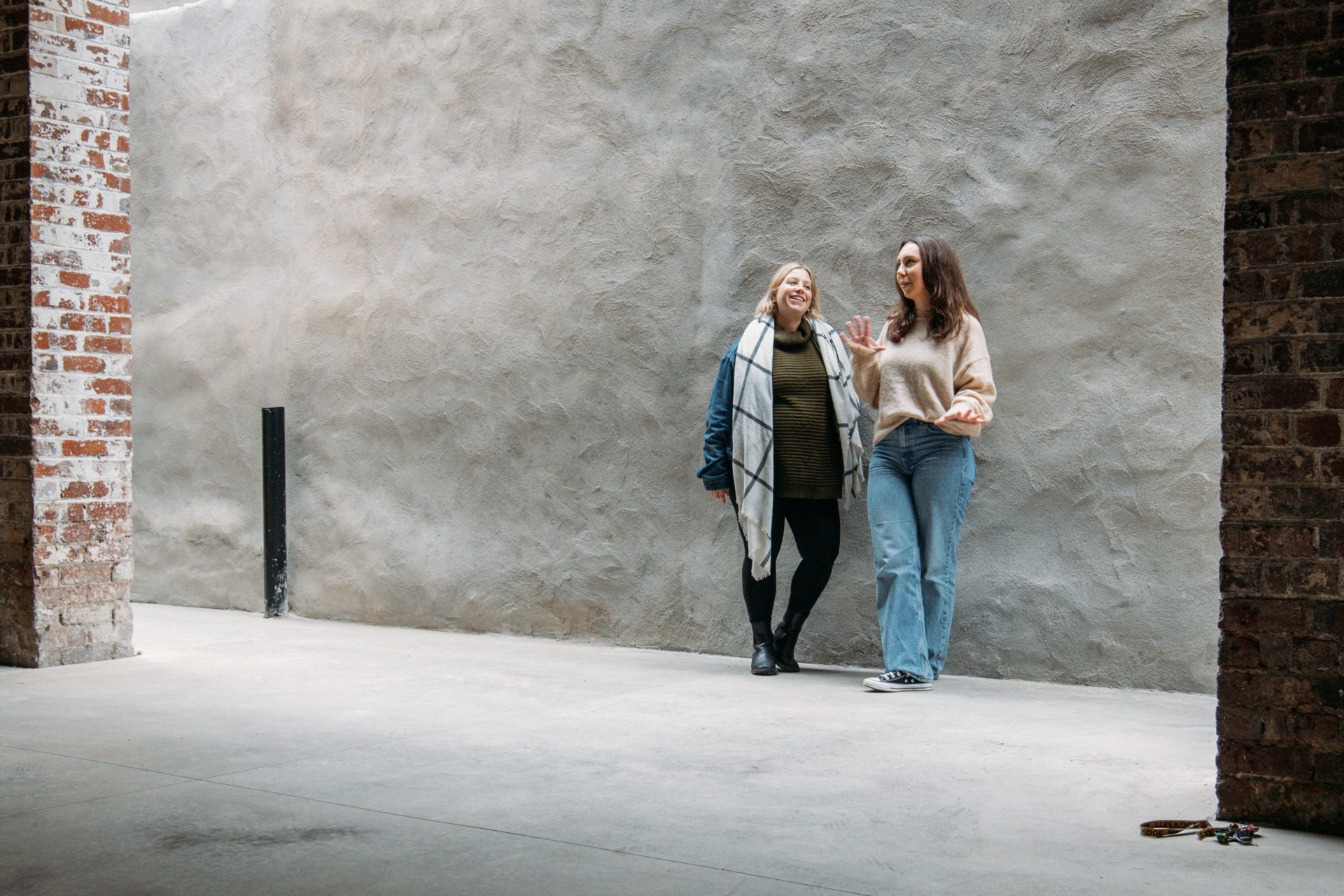
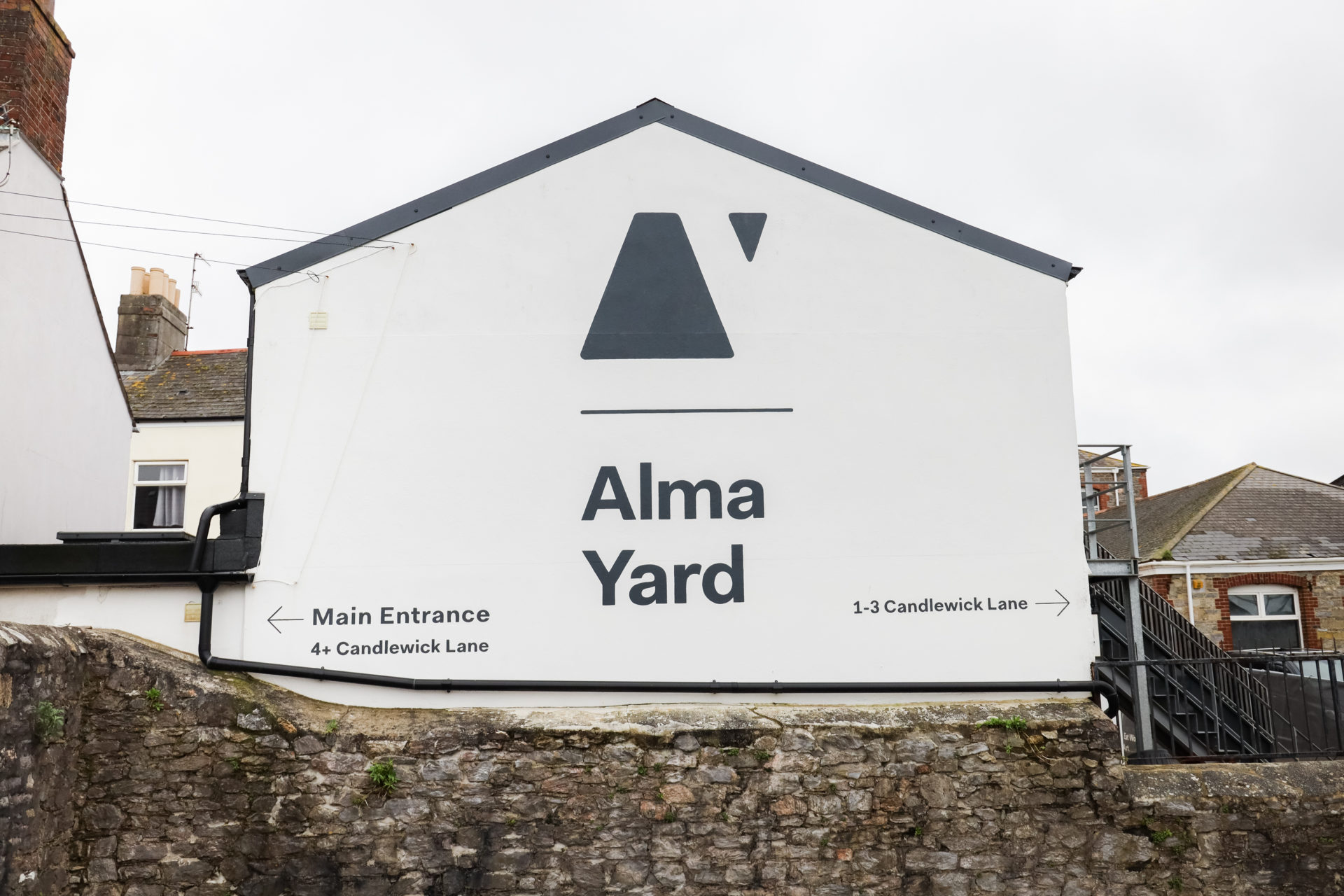
Playlist or podcast?
Kate: Sunday morning has to be a playlist. It has to. The actual Sunday morning playlist on Apple Music is one of my favourites. But if I’m in the car podcast. I am one of those true crime junkies. There is actually a podcast called Crime Junkies, it takes cases that haven’t been solved and basically talks through their trajectory in the hopes that by the end, the millions of people that might have been listening might be able to help. I’ve also just been introduced to The Rest Is Entertainment by our colleague Patrick, which is presented by Richard Osmond. That’s really funny. And they’re just basically kind of tearing apart the entertainment industry and decisions that people are making in terms of investment, but in a really hilarious and realistic way.
Georgie: I’ll say playlist but it totally depends on the mood. I love my cooking playlist, there’s a lot of old school R&B, some funk. And it’s just like a real kind of feel good playlist that you can dance to. It’s heavier on the 90s, but it’s got a nice mixture in there. It’s got a little bit of soul and funk as well, which I quite like.
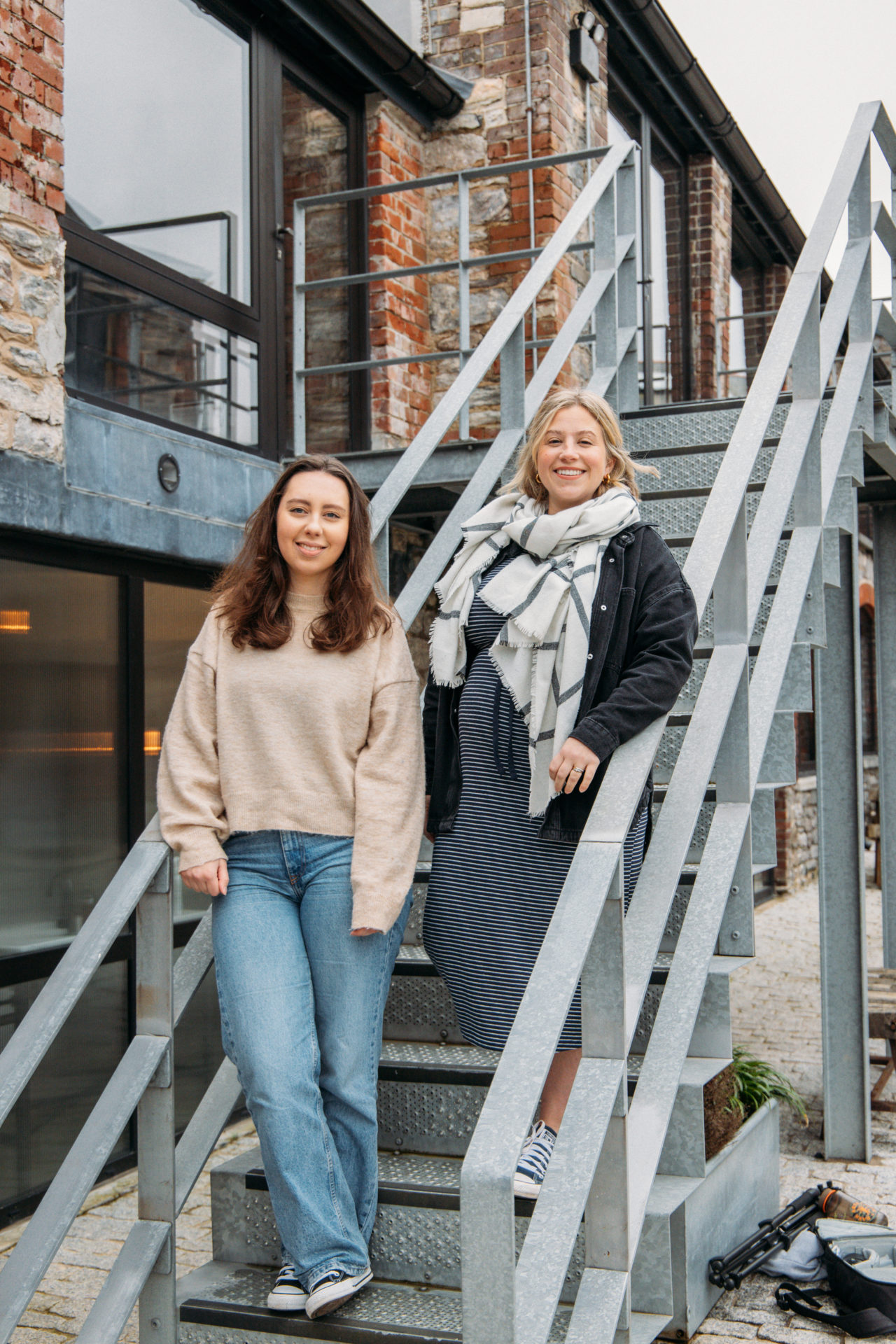
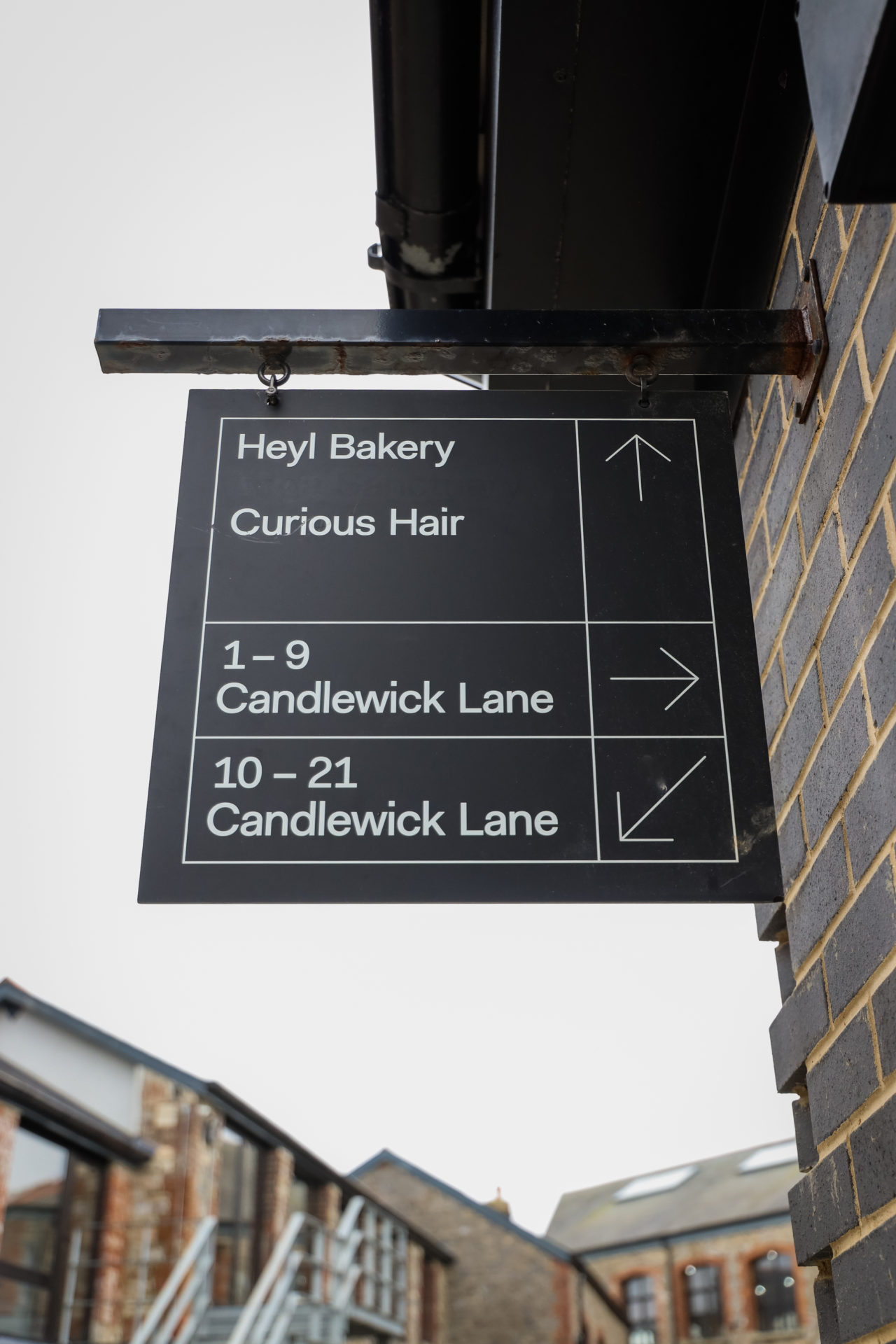
Any advice to people who are looking to create a start-up, whether it’s a creative studio or just an office, to break out and make their idea a reality?
Georgie: The thing I say to residents coming in that are starting something new is to get out and meet people, both amongst our community and wider. It’s so important, especially in Plymouth, everything is so intertwined and like we said before, it’s a really supportive community both in the city and amongst our residents. People will welcome you. But get out there, find out what other people are doing. You might be able to help them with something and vice versa.
Kate: Yeah, and just start. The bottom line is, if it’s been on your mind and you’ve had this idea bubbling and it keeps you awake at night, even if you don’t feel you’re worthy or whatever it might be, there are things that you can do to start getting it off the ground and it is so hard having faith in yourself. But once you start and you realise that you can deliver things, that faith embeds itself into you and you’re like, okay, I can do this. So always just start is my advice.
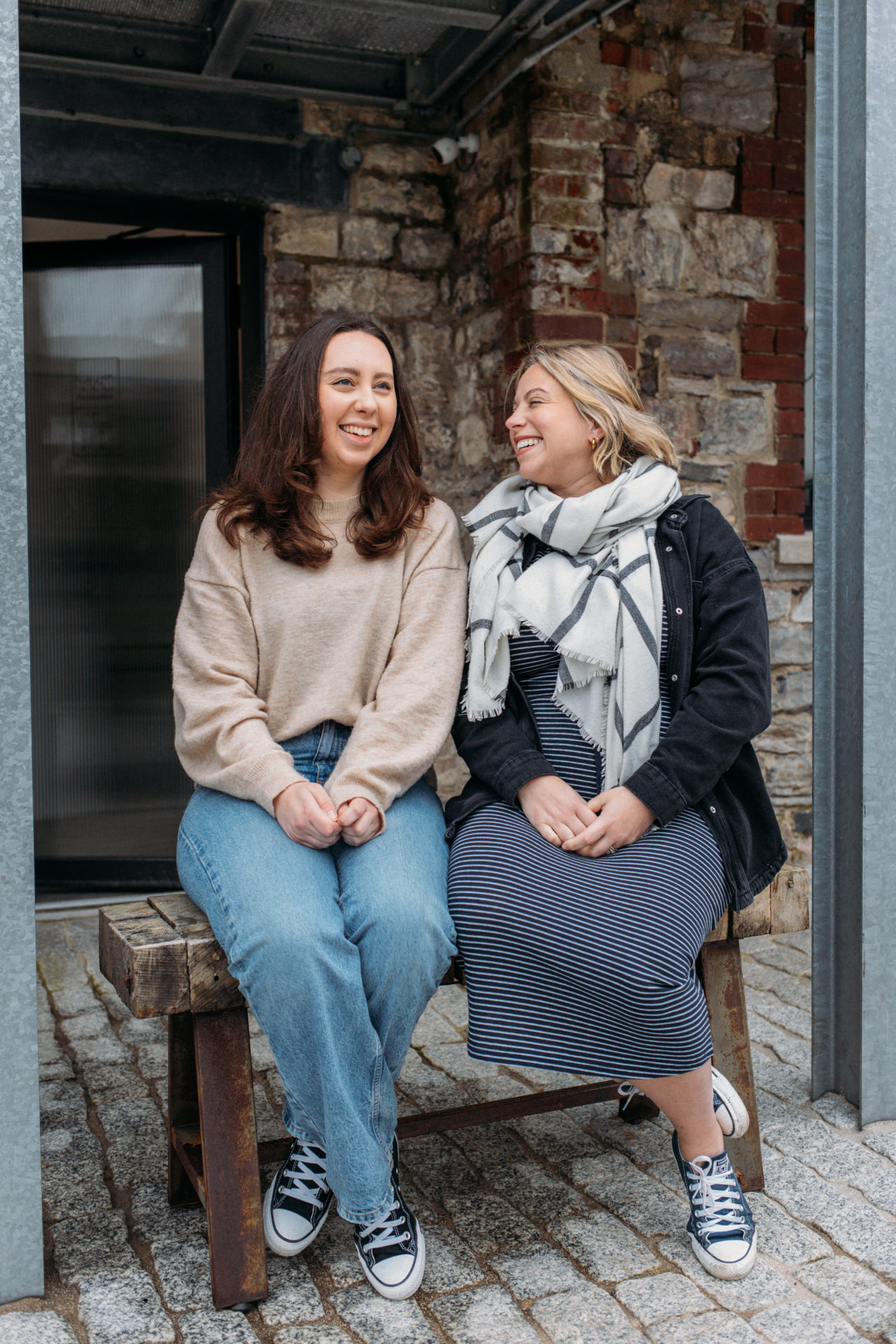
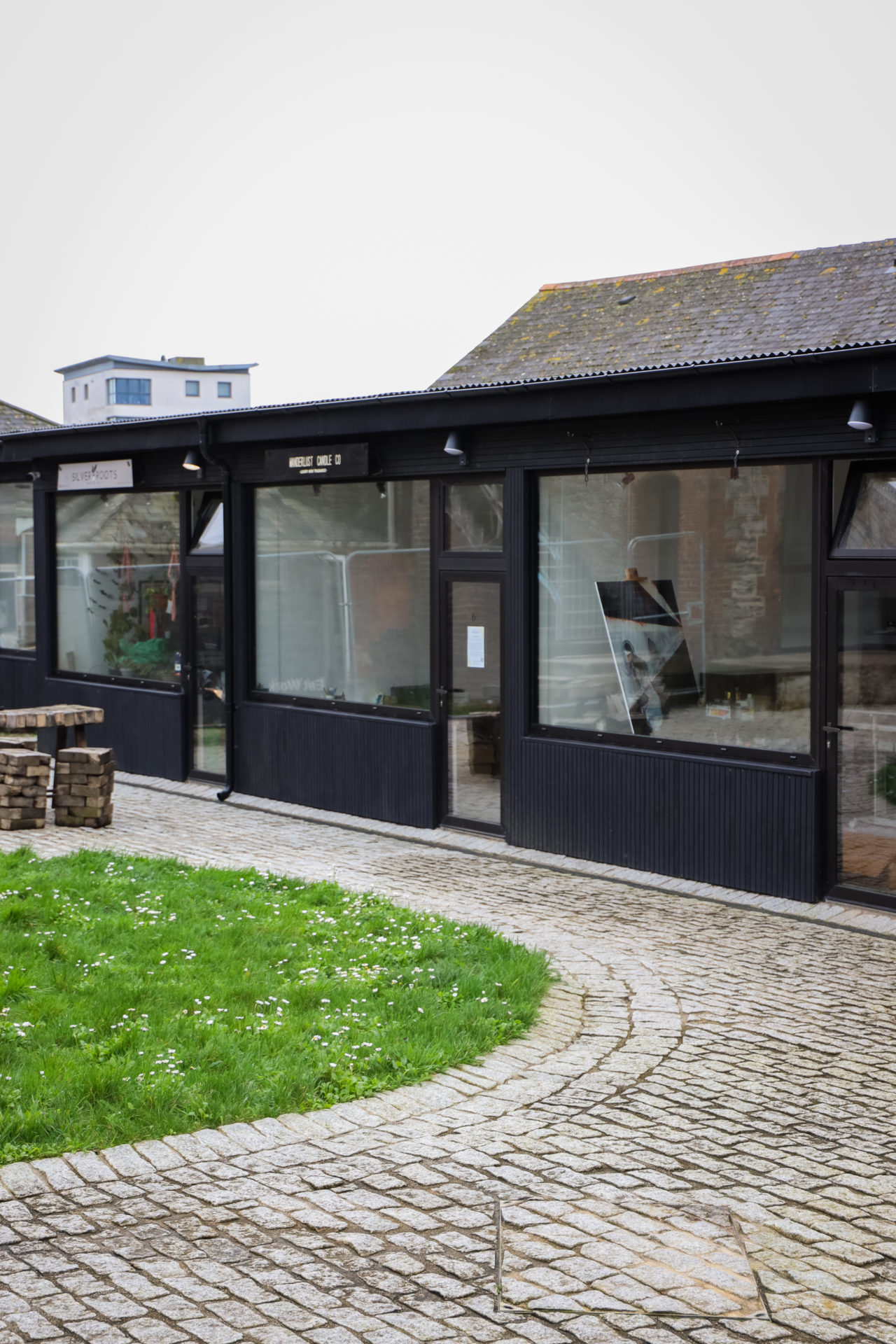
What keeps you in Plymouth?
Georgie: I think we might both have the same answer here.
Kate: Yes. Bit of a recurring theme but the people we meet. It gets you up every day. You know that we’re going to see people like you Dave or James Edgar or Christina Wilkins or whoever it is that we walk past that gets you up. But also, all the great opportunities for coffee, for pastries, for good music. I wouldn’t normally leave too early for work, but I do because I want to go and grab a coffee from Sonny’s and I want to go and get a Jacka Bakery pain au chocolat or Heyl Bakery Cinnamon Bun when it’s out of the oven at 08:30 in the morning because they’re absolutely banging and that’s an enjoyable part of working here. My favourite coffee bean is Jabulani which is at the food court in the back of The Plot on Union Street. Those are the beans that I have in my coffee machine at home. Sonny’s is a new one for me. Love Sonny’s. Jabulani is roasted by Owen’s Coffee in Ivybridge.
Georgie: It’s kind of connected to what Kate said, but also I think it’s the independent culture as well. I grew up around Exeter, it’s so franchise heavy and that’s fine for people that are looking for that, but I was really surprised in coming to Plymouth how there’s actually more independent cafes and restaurants here. You’ve got all these really cool spots that are run by people from Plymouth and I love that. Kyowa is a new favourite of mine!
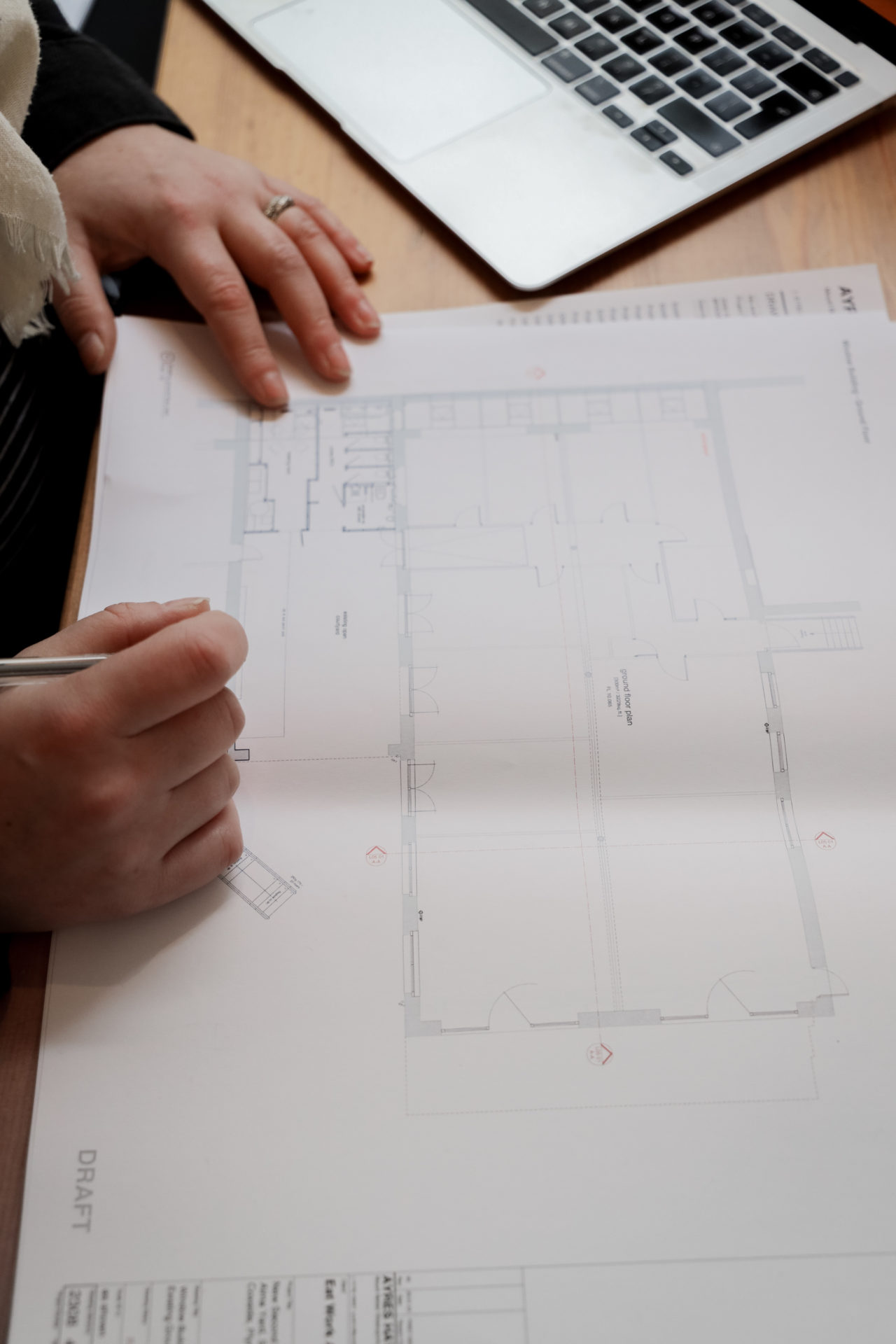
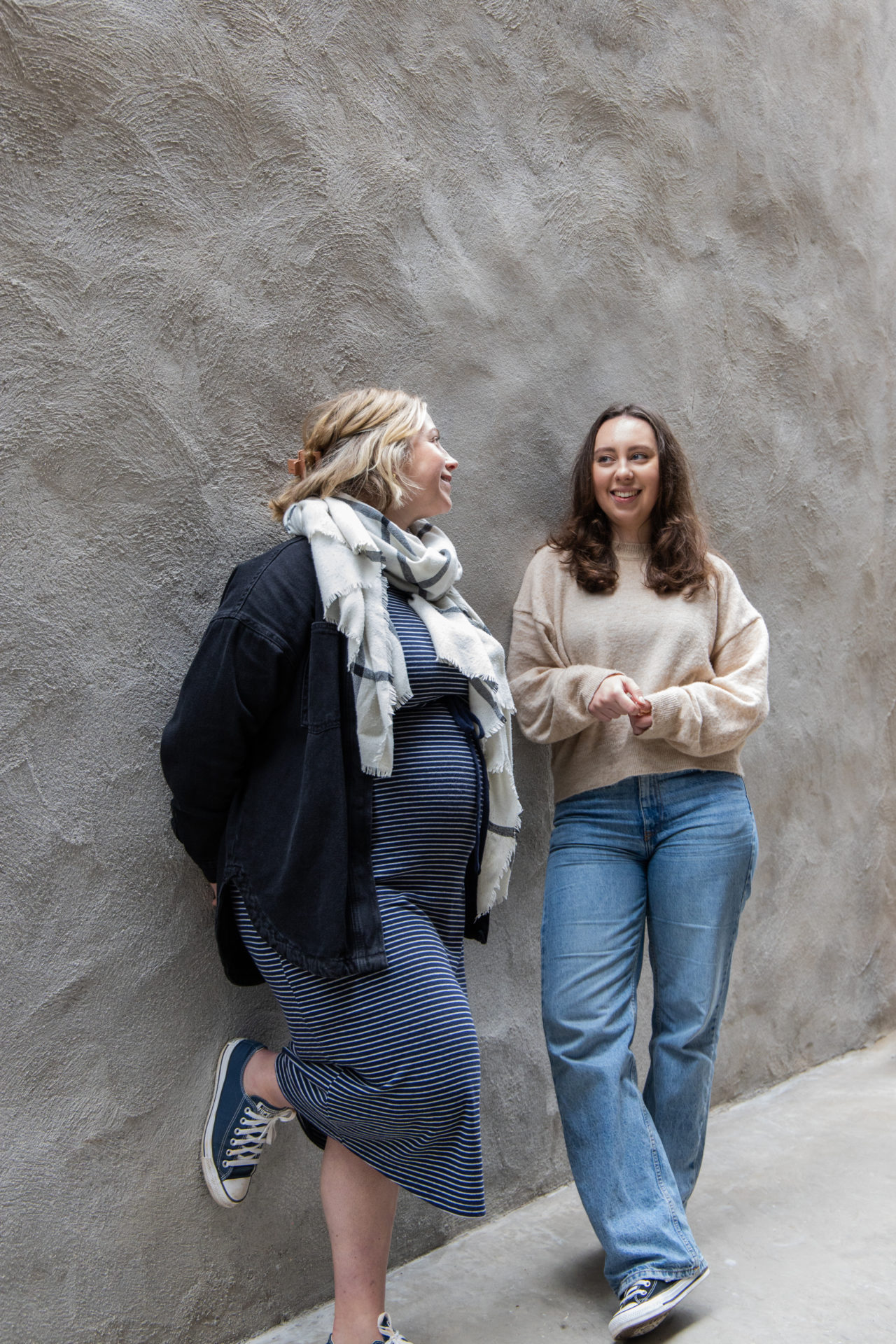
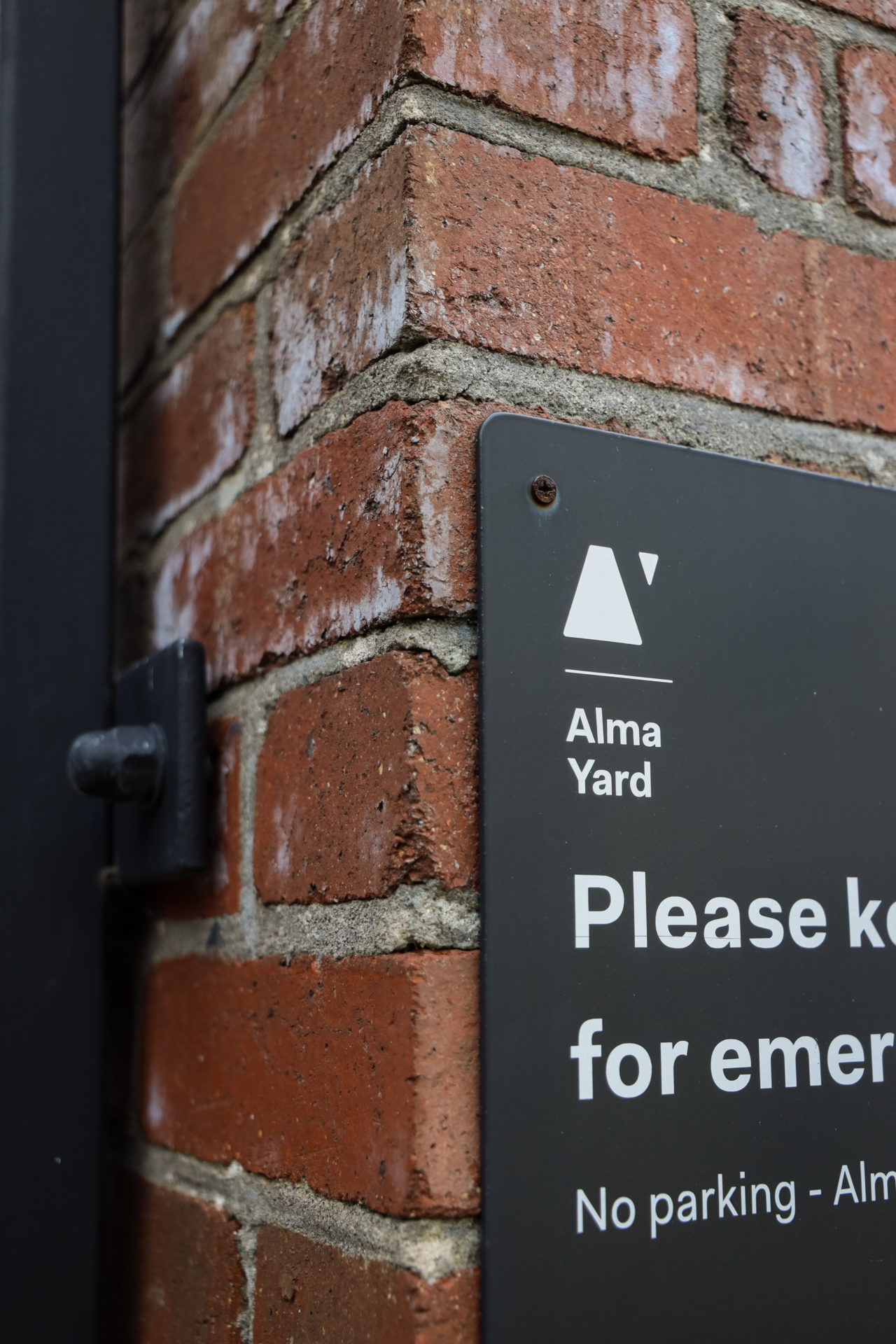
Check out Eat Work Art:
Website > eatworkart.com
Instagram > instagram.com/alma_yard/
> instagram.com/lightstudios_pl1/
—
If you’d like to feature on our HEY Series please let us know. Get in touch here.